STOP Thinking A CD Will Make You Famous
As one of Daredevil Production’s newest members, allow me to introduce myself. My name is Cody Upchurch, and I started working for the 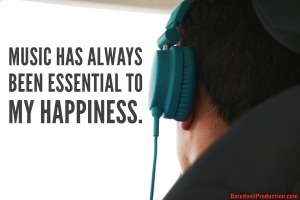 company a little over two weeks ago. In that short amount of time, I have obtained an abundance of knowledge that only hands-on experience can provide.  After just 2 weeks, many of my preconceived notions about the music industry still hold true but some of my opinions have drastically changed. This epiphany happened after receiving a deeper understanding of how the business ACTUALLY works.
company a little over two weeks ago. In that short amount of time, I have obtained an abundance of knowledge that only hands-on experience can provide.  After just 2 weeks, many of my preconceived notions about the music industry still hold true but some of my opinions have drastically changed. This epiphany happened after receiving a deeper understanding of how the business ACTUALLY works.
Like many of you, I have always thought that in order for an artist to be an artist, they first must have a CD or EP but I now know that this approach is categorically false. Sounds crazy, I know, but let me explain.
When I first arrived in Nashville, it became immediately apparent that the city is flooded with talented musicians. They’re playing at every bar, and they’re damn good at what they do. If you were to pluck any of these acts off the stage and ask them what they need for a “big break,†I can almost guarantee their first answer would be a CD, EP, or album. Sure, it would be nice to have an album under your belt, but that’s not the ticket for success. It’s definitely not the first step to artistic success anymore. This is a common misconception that, unfortunately, too many musicians have.
Honestly, I would have given a similar answer before arriving in Nashville, but after working with actual musicians and helping them work towards realizing their dreams, it has become quite clear that nothing equates to the importance of marketing before the CD.
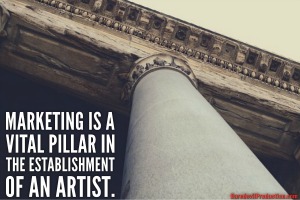 Structurally speaking, I always knew that marketing was one of the most vital pillars in establishing an artist’s career, but I never realized the extent to which record labels shape their budgets according to this philosophy. In the label mind, marketing outranks your recording by a landslide. They care less about what the artist is putting out, and more about how many people will listen to it (because it’s good!). Labels will do whatever they can to ensure they recoup their investment or at least get as close as possible. This is done by spending the majority of their monetary resources on marketing. If the marketing is effective in its intent, enough intrigue can be generated to ensure a substantial amount of people purchase the product.
Structurally speaking, I always knew that marketing was one of the most vital pillars in establishing an artist’s career, but I never realized the extent to which record labels shape their budgets according to this philosophy. In the label mind, marketing outranks your recording by a landslide. They care less about what the artist is putting out, and more about how many people will listen to it (because it’s good!). Labels will do whatever they can to ensure they recoup their investment or at least get as close as possible. This is done by spending the majority of their monetary resources on marketing. If the marketing is effective in its intent, enough intrigue can be generated to ensure a substantial amount of people purchase the product.
What would be the point of releasing an album or CD if no one knows it exists?
But this is what EVERY indie artist does, isn’t it? They release the CD first. Then think about marketing to an audience of zero but their artist soul, hopes, and dreams crumble when they discover nobody cares. But they do care. The problem is they just don’t know about the artist and in today’s market, the music is going to change that.
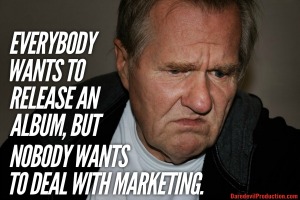 This is a fact that, for some reason, many musicians choose to ignore. Everybody wants to release an album, but nobody wants to think about marketing. While you have the power to allocate your money as you see fit, don’t expect that album to be your saving grace if you haven’t marketed YOURSELF properly before releasing it.  And posting on Facebook a week before your album release is NOT marketing. In a world before the internet, radio did the marketing for us (which meant the music came first), but not today. Now our phones are the radio, and every individual is the DJ of their own show. Thus, it is inherent that YOU put YOURSELF onto people’s stations. This isn’t done by releasing a song and expecting people to slide it into their rotation.
This is a fact that, for some reason, many musicians choose to ignore. Everybody wants to release an album, but nobody wants to think about marketing. While you have the power to allocate your money as you see fit, don’t expect that album to be your saving grace if you haven’t marketed YOURSELF properly before releasing it.  And posting on Facebook a week before your album release is NOT marketing. In a world before the internet, radio did the marketing for us (which meant the music came first), but not today. Now our phones are the radio, and every individual is the DJ of their own show. Thus, it is inherent that YOU put YOURSELF onto people’s stations. This isn’t done by releasing a song and expecting people to slide it into their rotation.
You must make an effort to connect with people on a personal level before you present them with a product to purchase or they just won’t care.
Once these connections are made, it is essential that you maintain the relationships and retain everyone’s information as best you can. Most artists, labels included place fans into specified demographics. Whether it be gender, race, age, etc., the analytics only give you a general idea of who your fans are. While this is extremely helpful in deciding how you should market your material, the most beneficial move an artist can make for his or her own career is to get specific information on each fan. This allows for surgical precision when it comes time to market the product you are trying to sell.
Another bit of online etiquette that my time in Nashville has taught me, is the importance of being personal with as many people as possible.
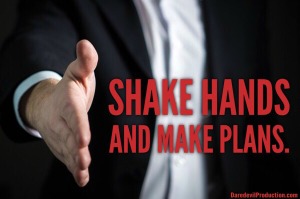 The most fireproof way to ensure someone supports your future endeavors is to communicate with them, by having REAL conversations.
The most fireproof way to ensure someone supports your future endeavors is to communicate with them, by having REAL conversations.
Social media gives us the power to chat with the people we admire, all without ever leaving our house. The more interactive the conversation is, the stronger the loyalty between fan and artist becomes. Back in the day, an artist’s interaction with fans occurred only through live performances, interviews, and the occasional public spotting. They didn’t have to worry about communicating with them on a regular basis because that technology didn’t exist. Today, however, it is expected that artists not only have a presence on social media but actively use it to converse with fans.
Retweets and Likes are a necessary mission-critical first step but a genuine back-and-forth is the most effective in developing a relationship.
Imagine social media as a sidewalk. As you’re walking down the street, you see one of your favorite musicians hanging out on the corner. You immediately begin to wave and express your praise, hoping that he or she not only waves back but speaks to you on a personal level. Social media presents this scenario on a daily basis and makes it easier than ever for artists to connect with fans on a deeper level. I see a Like as a slight head nod or wave, a Retweet as a spoken “Hello,†and an actual conversation as just that, a conversation. Imagine someone that you’re a fan of acknowledging you to the point where they ask follow up questions and keep the conversation moving forward. Not only would that make your day, but the chances of you supporting them financially (i.e. purchasing their music) increase exponentially.
 Once you remove yourself from the perspective of the artist and start looking through the eyes of a fan, real interaction begins to make more sense.
Once you remove yourself from the perspective of the artist and start looking through the eyes of a fan, real interaction begins to make more sense.
Now, you may be thinking what’s the point of marketing if we don’t have something to sell, but did you notice all these tactics I wrote about have exactly nothing to do with a CD or EP? You can start on the “building a relationship†piece of the puzzle right now without one song ever being recorded. It is important to understand this because the public won’t care about your music until after they care about you. If you truly understand this fact, why would you dare wait to begin your marketing strategy? Build up a rabid YouTube and social media fan base and THEN record a single.
I promise you’ll be amazed at the results.
I look forward to diving deeper into this topic, as well as countless others during my time with Daredevil Production this summer. Just remember, the tools are in your hand, why not utilize them?

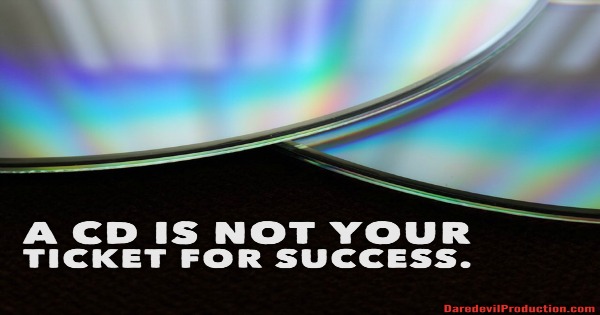
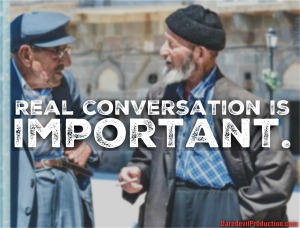

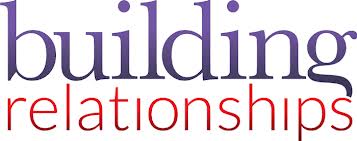
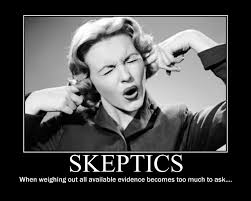
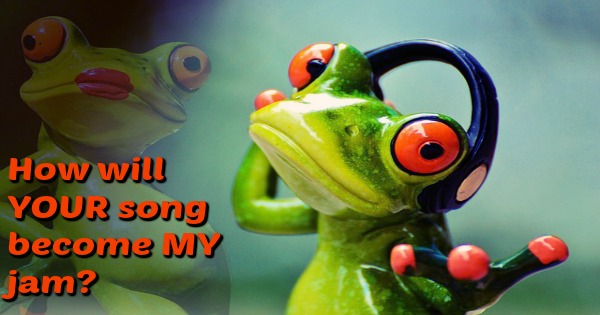
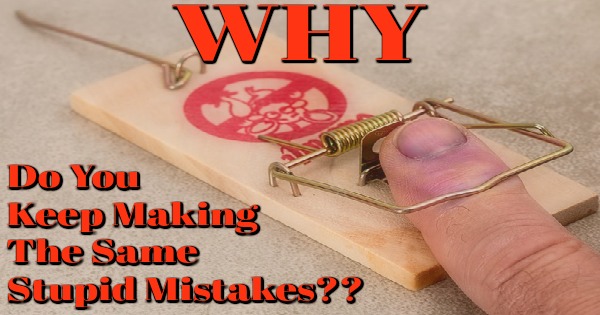

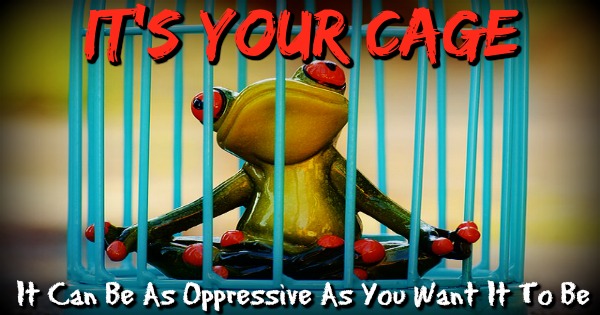
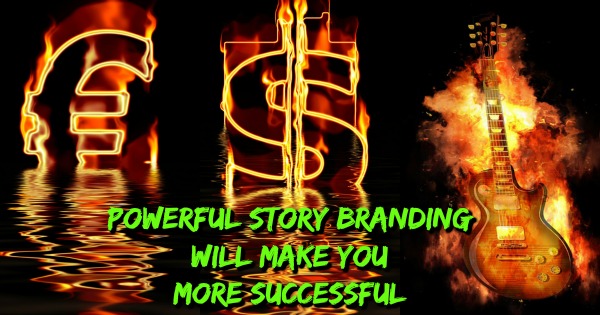
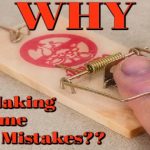

Tell Us Your Comments
Leave a Reply
Want to join the discussion?Feel free to contribute!